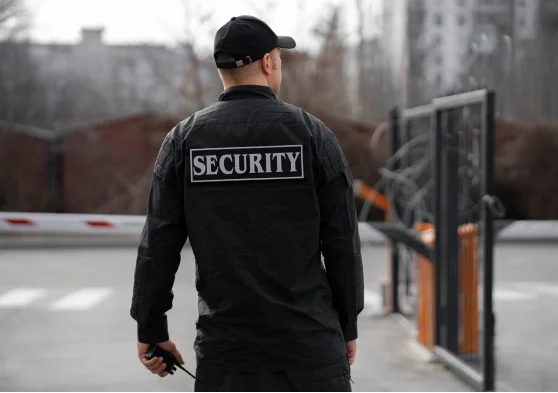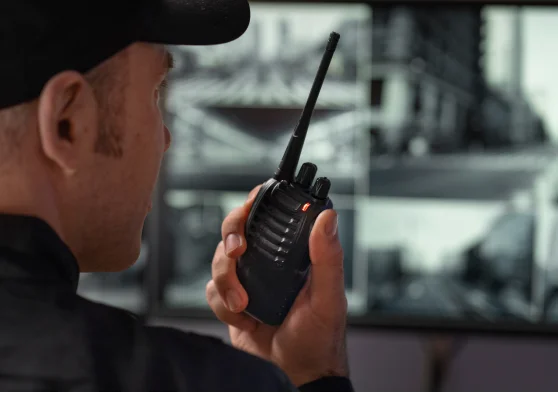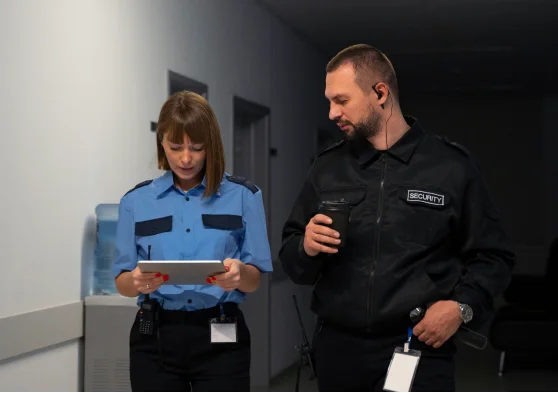In New York — one of the world’s top travel destinations and busiest business centers — hotel and motel security plays a vital role in protecting guests, staff, and property. With high foot traffic, diverse clientele, and 24/7 operations, hospitality venues are uniquely vulnerable to crime, liability risks, and safety incidents. Strong security systems not only prevent loss and violence but also contribute to a guest’s sense of safety, which directly affects a hotel’s reputation and profitability.
Why Hotel & Motel Security Is Essential in NY
- High Traffic and Guest Turnover
- NYC hotels may host hundreds to thousands of guests daily.
- Frequent guest turnover increases the risk of unauthorized access, theft, or illegal activity.
- Prime Targets for Crime
- Hotels are often targeted for:
- Room burglaries
- Credit card fraud
- Vehicle theft from parking lots
- Drug-related activity
- Budget motels and smaller inns may lack full-time security, making them easier targets.
- Hotels are often targeted for:
- Protection of Guests, Staff, and Property
- Guests bring personal valuables, electronics, and cash.
- Staff, particularly front desk and housekeeping, may be at risk for assault or harassment.
- Ensuring their safety is both an ethical and legal responsibility.
- Compliance and Liability
- Hotels must comply with NY fire codes, building security standards, and ADA safety regulations.
- Failing to provide adequate security can result in:
- Legal action
- Fines
- Increased insurance premiums
Key Components of Hotel & Motel Security in NY
- Access Control
- Key Cards & Smart Locks: Replace outdated physical keys with programmable access cards to reduce unauthorized room entry.
- Restricted Access to Staff Areas: Utility rooms, storage, and staff lounges should be off-limits to guests.
- Lobby Controls: Secure front desk areas, especially during overnight hours, and verify identities for check-ins.
- Surveillance (CCTV)
- 24/7 Video Monitoring: Strategically placed cameras in:
- Lobbies
- Elevators
- Hallways
- Parking garages
- Emergency exits
- Real-Time Monitoring: Footage should be monitored live, not just recorded, to enable fast responses to incidents.
- 24/7 Video Monitoring: Strategically placed cameras in:
- Security Personnel
- On-Site Guards: Presence in lobbies, entryways, and parking lots is a deterrent and provides immediate response during incidents.
- Mobile Patrols: Particularly for large hotels or motels with exterior corridors or multiple buildings.
- Plainclothes Officers: Used in high-end hotels to observe discreetly and de-escalate without alarming guests.
- Guest & Visitor Screening
- ID Verification: Require valid ID for all check-ins. This helps prevent fraud and identify flagged individuals.
- Visitor Logs: Maintain records of non-guests visiting rooms, especially in motels or extended-stay properties.
- Bag Checks (Event Nights): In luxury or event-hosting hotels, guest bags may be checked upon entry for prohibited items.
- Emergency Systems
- Panic Buttons: Installed at the front desk, concierge station, or inside hotel rooms for staff in distress.
- Fire Alarms & Sprinkler Systems: Must comply with NYC building codes and be tested regularly.
- Evacuation Routes: Clearly marked in hallways and inside each room with multilingual instructions.
- Lighting and Visibility
- Exterior Lighting: Parking lots, entryways, and outdoor walkways must be well-lit.
- Hallway and Elevator Lighting: Eliminates dark corners and deters potential attackers or vandals.
- Parking Lot Security
- Gated Access or Ticketing Systems: Controls who can park on the property.
- CCTV and Patrols: Prevent car theft and loitering.
- Cybersecurity and Data Protection
- Guest Data Security: Protect guest information such as credit card data and booking history.
- Wi-Fi Safety: Provide encrypted Wi-Fi and discourage guests from using unsecured networks.
- POS System Protection: Hotels must secure their point-of-sale systems (for restaurants, bars, and shops) to prevent data breaches.
- Staff Training
- Security Protocols: Train staff to handle guest confrontations, identify suspicious behavior, and respond to emergencies.
- Human Trafficking Awareness: Hotels are on the front lines of identifying and reporting trafficking, especially near transport hubs.
- Crisis Management Drills: Regular drills for fires, evacuations, and lockdown situations.

Benefits of Hotel & Motel Security in NY

- Guest Satisfaction & Loyalty: Guests are more likely to return and leave positive reviews when they feel safe.
- Loss Prevention: Fewer thefts mean lower insurance claims and operational costs.
- Risk Mitigation: Reduces legal exposure for injury, theft, or criminal activity on-site.
- Operational Efficiency: Staff can perform their jobs without fear, improving service quality.

Challenges

- Balancing Safety with Hospitality: Security must be discreet and non-intrusive to maintain a welcoming environment.
- Budget Constraints: Smaller motels may struggle to afford 24/7 security staffing or top-tier surveillance systems.
- Urban Crime Spikes: Hotels in certain NYC neighborhoods may face more persistent security threats.

Conclusion

Hotels and motels in New York must prioritize security to protect people, property, and brand reputation. With rising traveler expectations and evolving urban safety challenges, a proactive, layered security strategy is a must — not a luxury. Whether you’re managing a boutique hotel in Manhattan or a roadside motel in Queens, investing in modern security systems and well-trained staff pays dividends in guest trust and operational success.
